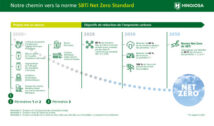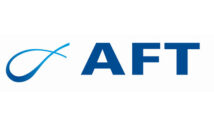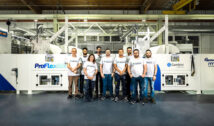
Today, the American Forest Foundation (AFF), a conservation organization that focuses on empowering family and private forest owners to protect and improve their forests, released a new white paper outlining the case for working with family forest owners to sequester and store more carbon.
The findings follow growing evidence that forests and other natural climate solutions hold the potential for more than one-third of needed climate change mitigation globally through 2030 to keep temperature increases under the needed two degrees. Further research shows that one of the greatest opportunities to implement these natural climate solutions is through the U.S.’s working forests — specifically through improved management of existing forests and reforestation.
“The opportunity in our forests cannot be understated,” said Josh Parrish, Director of the American Forest Carbon Initiative at The Nature Conservancy. “To unlock this potential we must utilize strategies that are a win-win for people and nature. AFF has been an incredible partner in collaborating around solutions related to family and private owned forests.”
AFF’s white paper examines the largest ownership group of forests in the U.S. – private and family-owned forests. Collectively holding 290 million acres, families and individuals own 36 percent of all forests. They total 21 million individuals and represent 1 in 4 rural Americans. The majority own smaller forested tracts between 20 and 1,000 acres, and are not considered wealthy Americans, with 33 percent falling below the U.S. median income.
AFF has found, based on numerous studies that family forest owners’ values align with the needs of our environment and climate. They care about seeing their land remain as a forest into the future, and about improving the health of their forest. Yet, few are currently implementing practices that would increase the health and carbon sequestration ability of their trees. This inaction is caused by difficulty finding information and trusted resources, and most notably, the high cost of forest management and conservation.
In response, AFF’s white paper details a critical financing mechanism that could open up revenue streams to family landowners, helping overcome cost barriers and incentivizing voluntary behavior at scale.
“Carbon markets are seeing expansive growth across the private sector as companies express leadership in addressing their own carbon footprint through operational efficiencies, reductions in emissions, and when needed, carbon credits to reduce residual emissions,” said Tom Martin, President and CEO of AFF. “Yet, the available forest carbon projects open to investment are nearly all located on properties of 5,000 acres or more. They are not designed for, or accessible by, smaller family forest holdings which both limits the carbon available on the marketplace and prevents families from accessing needed income that could empower their forest stewardship. We at AFF are working to solve this.”
The white paper describes a new program, the Family Forest Carbon Program, created by AFF and TNC that aligns family forest owners and the private sector to address climate change together. The program takes a new approach to developing forest carbon projects, offering payments to landowners for implementing carbon-positive forest management practices. In return, the program produces verified carbon credits, as well as added benefits such as rural economic stimulus and the enhancement of habitat for at-risk species. The program’s carbon accounting methodology is on track for approval from Verra’s Verified Carbon Standard (VCS) by the end of this year.
The white paper can be downloaded in full at www.forestfoundation.org/white-paper-carbon-family-forests.

































